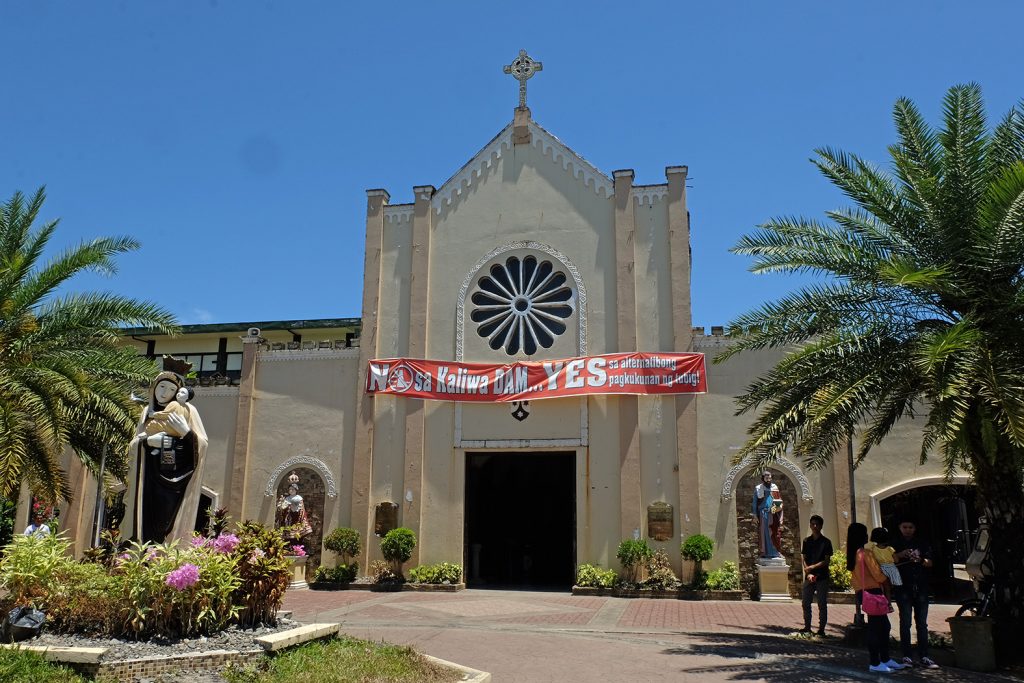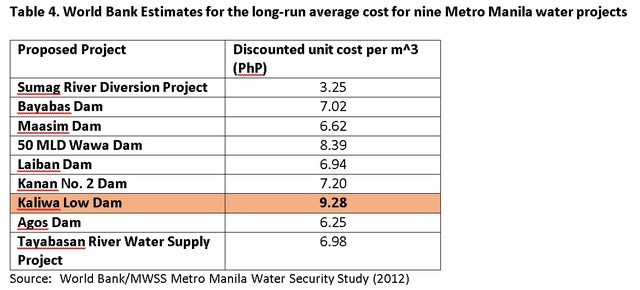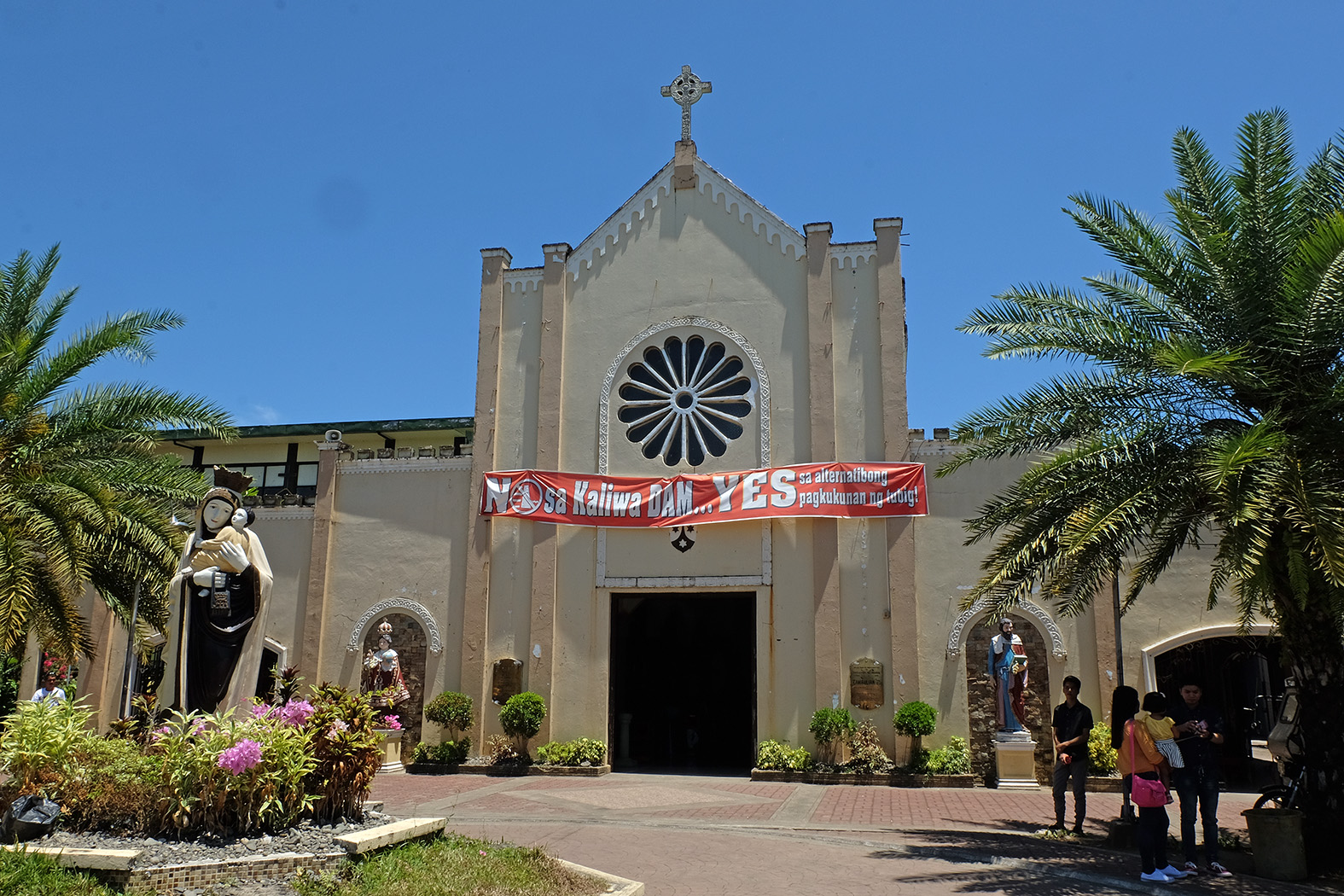
In Philippines a church-led campaign has been rolled out to gather signatures of 10 million people urging the government to drop a controversial dam project in the mountains of the northern Philippines.
The Prelature of Infanta said it began gathering signatures a month ago, as the government started the construction of the P18.7 billion Kaliwa Dam project. Bishop Bernardino Cortez is appealing for help in a last ditch effort to protect local communities and their environment.
“The struggle is far from over… and we are asking for your help,” Cortez said in an Aug. 3 letter to his brother bishops.
Located in Quezon province, the project since 1967 was unsuccessfully marketed as long-term solution to the increasing water demand in Metro Manila. Now the dam became one of the pet projects of the Duterte administration financed by China, his main political and economic ally, through a bilateral loan agreement.
Local officials and environmentalists have opposed the project over concerns it would ravage the biodiversity in the Sierra Madre mountain forests and flood several villages downstream.
Anti-dam advocates also said it will displace thousands of people, most of whom are from the indigenous Dumagat tribe since it will be built on their ancestral domain.
“We thus call on President Duterte and all government leaders to revoke the Kaliwa Dam project,” read part of the prelature’s petition. “We believe that this project will not address the problem but also make conditions worse for the Philippines,” it added.
In a pastoral letter released in July 2018, Bishop Cortez warned that the dam will only bring more problems than gains especially to the villagers.
With the hefty budget for the project, he urged the government to instead look for alternative sources of water such as watershed rehabilitation and improving existing dams and water distribution facilities. The statement was also supported by 55 prelates led by Archbishop Romulo Valles, president of the Philippine bishops’ conference.
The Environmental Management Bureau (EMB) of the Department of Environment and Natural Resources (DENR) announced the schedule in a notice posted on its website.
The Kaliwa Dam would be built in the municipalities of General Nakar and Infanta in Quezon and in the municipality of Teresa in Rizal. It is seen as a possible solution to the Metro Manila water crisis. It would cost P12.2 billion to build, with 85% set to be funded by China through official development assistance. The remaining amount will be shouldered by the Philippine government through the Metropolitan Waterworks and Sewerage System.
Yet beyond most ecological and social criticisms of the project, the Kaliwa Dam also faces substantial viability challenges. Not only might the proposed dam’s balance of costs and benefits render it unviable, the venture’s poor financial prospects could saddle consumers in Metro Manila with higher, long-term water tariffs.
In its 2012 Water Security Study for Metro Manila, the World Bank actually anticipated these issues over the project’s viability. Assessing nine water supply projects for the Metro Manila (see Table ), including the Kaliwa dam, the World Bank analysis integrated several additional factors such as leakages in the extraction and conveyance of water, as well as environmental assessment and watershed maintenance costs.
The Kaliwa Dam’s EIRR in the World Bank study was estimated at an unviable 14% (and an even lower 11% in its sensitivity analysis). Indeed, the World Bank concluded: “Only the Kaliwa Low Dam project is below the hurdle rate of 15% EIRR, thus failing to pass the decision criteria for the economic viability test.”
Just as strikingly, the Bank also furnished evidence that the Kaliwa Dam could prove disadvantageous for consumers. Among the water supply projects, the long-run average cost of the Kaliwa Dam was calculated at P9.28 per cubic meter (see Table 4 ) – the most expensive per unit in the entire list.

Finally the country’s antitrust body is looking into the alleged rigging of a bidding for a big-ticket China-funded project under the Duterte administration’s “Build, Build, Build” initiative.
This developed after a document issued by the Commission on Audit (COA) to the Metropolitan Waterworks and Sewerage System claimed the bidding for the project and the awarding of the contract were questionable. It was a “negotiated contract,” it claimed. A Chinese state-owned company won the bidding held in December last year, besting two other Chinese contractors who were disqualified for failing to comply with the requirements, which COA claimed seemed intentional.
Sources: https://www.rappler.com and other Philppine media

